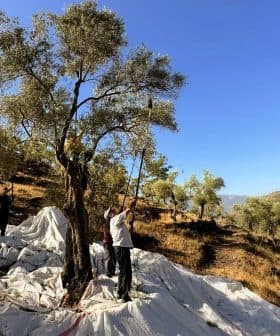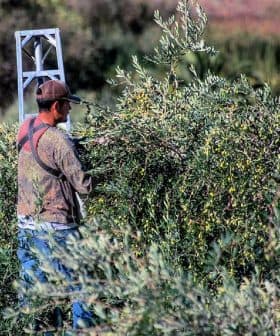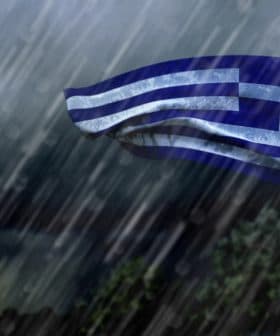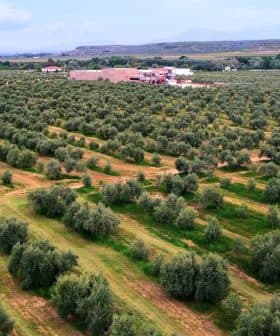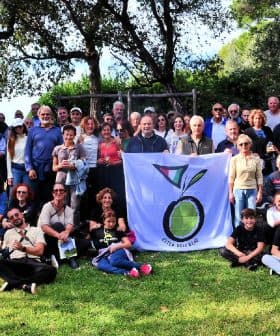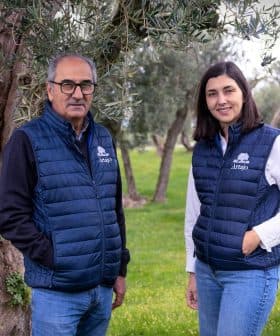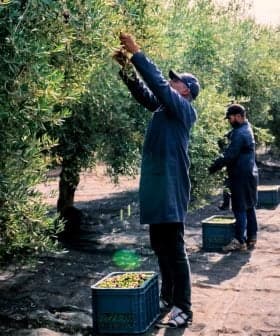Europe to Introduce New Climate and Environmental Policies
Under the new scheme, olive farmers can be an important cog in the wheel of Europe’s agricultural sector by providing feedback for improved agricultural and sustainability practices.
 Achieving carbon neutrality tops the list of the new European Commissioner's top priorities.
Achieving carbon neutrality tops the list of the new European Commissioner's top priorities.The European Union is preparing a new package of climate and environmental policies to achieve “climate neutrality” by 2050, with plans to extend the cap-and-trade system to the maritime sector. The new policies will be presented by the president of the European Commission, Ursula von der Leyen, on December 11, with discussions among E.U. member state leaders set to take place on December 12 and 13 to finalize the agreement.
The European Union has prepared a package of new climate and environmental policies and rules, which could be implemented in the context of the European Green Deal initiative if the plans pass muster.
The package of environmentally friendly reforms is scheduled to be presented to the public by the new president of the European Commission, Ursula von der Leyen, on December 11.
Olive growers can help by identifying the farming practices they can improve to prevent soil erosion and overuse of water; offer more refuges and harvest safely for wildlife; reduce the use of agrochemicals, or store more carbon in soils.
According to an early draft proposal of the new policies, the first and most important objective of the new strategy is to achieve “climate neutrality” no later than 2050. This translates to zero greenhouse gas emissions from the E.U. member states by that year, which mainly concerns gases emitted by burning fossil fuels.
Climate neutrality means that all carbon emissions should be counterbalanced by carbon sequestration, which is the process of removing and storing carbon dioxide from the atmosphere.
See Also:Sustainability NewsThe cap-and-trade system that allows selling and buying of industrial gas emissions within the Union member states (plus Iceland, Norway and Liechtenstein) will also be extended to include the maritime sector.
In advance, Brussels will evaluate the possibility of adding the road transport emissions to the trading system, an intention dismissed by environmentalists, many of whom say that the extension of the measure will allow car makers to reduce their effort and costs in producing more environmentally-friendly vehicles.
As far as the agricultural sector is concerned, the E.U. intends to adopt “a toolbox for alternatives to pesticides” and improve the existing rules of food data and labeling to better inform consumers.
Jabier Ruiz, Senior Policy Officer, Agriculture and Food, from the World Wildlife Foundation’s European Policy Office, told Olive Oil Times that the E.U.‘s Green Deal could lead to more sustainability in the food sector of Europe.
“In terms of agriculture, we look to the European Green Deal to help a transition to sustainable food systems in the E.U., for example, by proposing a long-term strategy to guide the way,” Ruiz said.
He also pinpointed the important role olive farmers could play in the new scheme through their feedback in crucial parts of their job, and he acknowledged the need to reward their efforts and contributions.
“Olive growers can help by identifying the farming practices they can improve to prevent soil erosion and overuse of water; offer more refuges and harvest safely for wildlife; reduce the use of agrochemicals, or store more carbon in soils,” he said. “Public policies must be used to reward farmers that go the extra-mile.”
The package also includes a new motto for the environment, called “a green oath: do no harm,” aiming to eliminate “incoherent legislation that reduces the effectiveness in delivering the Green Deal.”
However, not all the E.U. member states have accepted the new climate strategy lying down.
Poland, Hungary, and the Czech Republic have opposed the plan by claiming that the 2050 zero-emission objective will irreparably harm their economies due to their extended dependency on fossil fuels.
By contrast, a group of 10 member states, including countries such as France, Denmark, Sweden and Spain, have asked the European Commission for a “clear direction” toward a net-zero emissions target.
A summit of E.U. member state leaders is set for December 12 and 13 in Brussels, where the new climate and environmental policies will be discussed. A unanimous agreement is required from the leaders in order for the new policies and rules to be formalized within the E.U.


